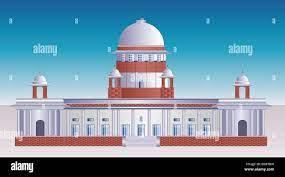Electronic Voting Machines – No replacement by Paper ballots – The petitioners do not allege any malice towards the Election Commission of India or manipulation of Electronic Voting Machines (EVMs), but raise concerns about the possibility of tampering. Arguments presented include suggestions for the return to paper ballots, increased verification of VVPAT slips, and 100% counting of VVPAT slips alongside electronic counting.
The judgment extensively examines the procedures outlined in the Conduct of Election Rules, 1961, regarding the preparation, voting process, and counting of votes using EVMs and VVPATs. Detailed scrutiny of the safeguards and protocols surrounding EVMs and VVPATs is conducted, including checks on the firmware and the performance data of EVMs.
The Court emphasizes the importance of evidence-based decisions and cautions against unfounded doubts that may undermine confidence in the electoral process. Rejects calls to return to paper ballots, citing the advantages of EVMs in eliminating malpractices and expediting the counting process.
Issues directions to further enhance the integrity of the electoral process, including sealing and securing symbol loading units and verifying burnt memory/microcontrollers in a percentage of EVMs post-election. (Para 42, 76)
Electronic Voting Machines No fault in using – The judgment delves into the intricacies of the challenge against the use of Electronic Voting Machines (EVMs) and the Voter Verifiable Paper Audit Trail (VVPAT) system.
The petitioners raised concerns about the reliability and susceptibility to manipulation of EVMs, advocating for a return to the paper ballot system. However, the court observes that such a demand lacks merit and is aimed at discrediting the electoral process, thus casting doubts on the bona fides of the petitioners.
While acknowledging the importance of safeguarding the sanctity of the electoral process, the court emphasizes the need for transparency and accountability in the conduct of elections. It underscores the existing legal framework, including provisions for election petitions, to address any concerns regarding the integrity of the electoral process.
Highlighting the unique challenges posed by the vast electorate and diverse geography of India, the judgment underscores the significance of the Representation of the People Act, 1951, in ensuring democratic principles and upholding electoral integrity.
The judgment addresses the petitioners’ contentions regarding the right of voters to know that their votes are accurately recorded and counted. It elucidates the procedures in place, including VVPAT slips verification and legal remedies, to uphold this right within the framework of free and fair elections.
The court scrutinizes the maintainability of the writ petitions, emphasizing the need for credible evidence to substantiate claims of infringement of rights. It discusses the principles of res judicata and underscores the importance of presenting new grounds distinct from previous litigation to avoid redundancy in legal disputes.
While recognizing the importance of judicial intervention in matters of public interest, the judgment cautions against frivolous litigation based on mere suspicions and conjectures. It calls for a balanced approach guided by evidence and reason to ensure the credibility and effectiveness of the electoral system. Writ petition dismissed. (Para 1, 35, )
SUPREME COURT OF INDIA
2024 STPL(Web) 287 SC
2024 INSC 341
Association For Democratic Reforms Vs. Election Commission Of India And Another
Writ Petition (Civil) No. 434 OF 2023 With Writ Petition (Civil) No. 184 OF 2024 And Writ Petition (Civil) No. OF 2024 (DIARY NO. 35782 OF 2023)-Decided on 26-04-2024
https://stpllaw.in/wp-content/uploads/2024/04/2024-STPLWeb-287-SC.pdf







